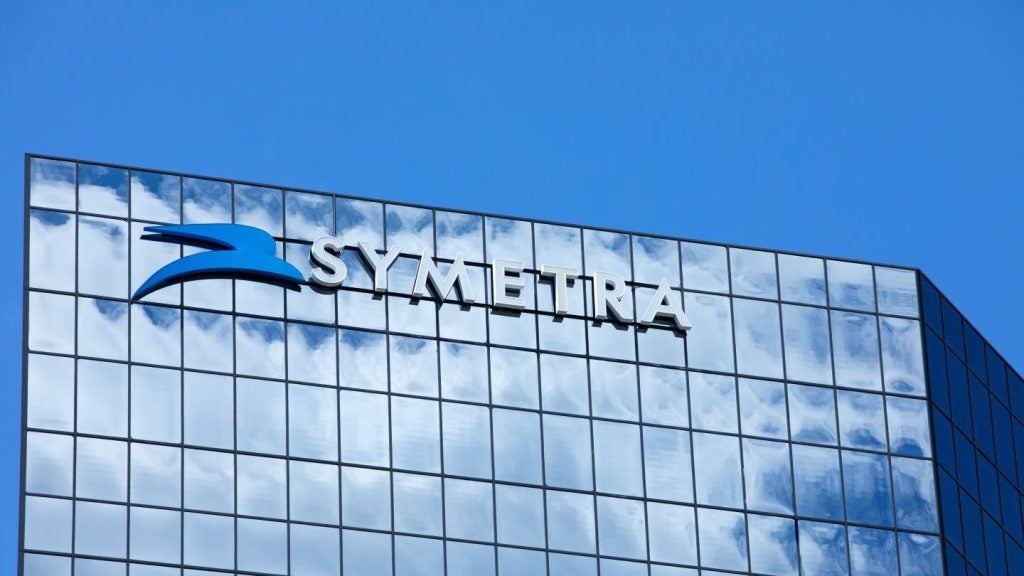COMPANIES
AIG appoints new CEO
Still in the early phase of a massive restructuring, US insurer
American International Group (AIG) has appointed Robert H Benmosche
as president and CEO.
Benmosche, who took up the position on 10 August, replaced Edward
Liddy who announced his retirement from AIG in May this year, a
mere eight months after his appointment.
Sixty-five year old Benmosche, AIG’s fifth CEO since 2005, brings
with him significant experience in the financial services industry
including that of chairman and CEO of Metlife during its transition
from a mutual to a public company in 2000.
Benmosche occupied the positions at MetLife between 1998 and
2006.

US Tariffs are shifting - will you react or anticipate?
Don’t let policy changes catch you off guard. Stay proactive with real-time data and expert analysis.
By GlobalDataWith a new CEO ensconced, AIG must now set about finding a
replacement for another senior executive, vice-chairman and chief
restructuring officer Paula Rosput Reynolds, who has announced that
she is to vacate the position late in the third quarter of 2009. To
date she has overseen six completed asset sales in deals totalling
just under $2 billion.
In addition, in the biggest disposal yet Zurich Financial Services’
US unit, Farmers Group is to buy 21st Century Insurance Group, a
specialist vehicle insurance business in a deal worth $1.9 billion.
Other disposals to be closed have a total value of about $650
million. AIG is targeting federal loan repayments of some $80
billion.
INDUSTRY TRENDS
US mutuals edge ahead in the ratings stakes
Conservatism pays, at least during tough economic times, highlights
a comparison between US mutual insurers and their stock (public)
company counterparts undertaken by rating agency Moody’s Investors
Service.
Indicative of the greater resilience displayed by mutual insurers,
ratings of less than 25 percent of mutuals have been downgraded by
Moody’s since 31 December 2007. None have been downgraded by more
than one rating notch.
Contrasting with this, Moody’s has downgraded half of the stock
life insurance companies it rates, with some ratings cut by as much
as three notches.
As a result, the average rating difference between stock and mutual
insurer is now three notches in favour of the latter, having
widened by about one full rating notch in the period.
“Mutual companies are typically more conservatively managed than
their non-mutual peers,” said author of the study, Moody’s
vice-president Arthur Fliegelman.
As a result, mutuals tend to have greater balance sheet capital,
lighter financial leverage, less goodwill and intangibles,
lower-risk products, and more committed distribution – features
that generally help absorb unexpected shocks.
However, Fliegelman stressed that because mutuals do not have ready
access to the equity capital markets they may not succeed as much
in buoyant economic times as their stockholder-owned peers.
COMPANIES
ING rationalises in Chile
As part of its strategy to exit non-core activities, ING Group is
to sell its annuity and mortgage businesses in Chile to life
insurer Corp Group Vida Chile for an undisclosed sum.
The sale of the business units which generated a pre-tax profit of
€35 million ($49 million) in 2008 will leave ING focused on pension
provision, life insurance and investment management in Chile.
ING is the third-largest pension provider in Chile with €16 billion
in assets under management and 2 million clients in the
country.
In Latin America as a whole, ING is the second-largest pension
provider with €29 billion in assets under management and 10 million
clients.
Corp Group Vida Chile is controlled by Chilean bancassurer Corp
Group Banking which holds a 66.5 percent stake and US insurer
MetLife which holds a 33.5 percent stake.
COMPANIES
Zurich appoints new CEO
Zurich Financial Services (ZFS) has announced that its CEO James J
Schiro is to retire at the end of 2009.
Sixty-three year old Shiro, a US citizen, who has been credited
with engineering the successful turnaround of the Swiss insurer
since becoming CEO in May 2002, is to be succeeded by Martin Senn,
currently ZFS’ chief investment officer.
A Swiss citizen, Senn, 52, joined Zurich in January 2006.
Prior to joining ZFS he occupied senior positions with Swiss Life,
Credit Suisse and Swiss Bank Corp (now UBS), serving in financial,
operational and investment-related roles in Europe, Asia and North
America.
In the first half of 2009 ZFS reported net income of $1.3 billion,
down 53 percent compared with the first half of 2008.
Gross life insurance premium income of $11.6 billion reflected an
11 percent increase – though in constant currency terms the
increase was notably higher at 30 percent.
Life business operating profit fell by 17 percent to $641 million
and 5 percent in constant currency terms.
INDUSTRY TRENDS
Solid improvement in UK critical illness
payouts
Efforts by the UK insurance industry to enhance payout levels on
critical illness claims have yielded positive results, reveals a
review published by LifeSearch.
According to LifeSearch, insurers are on average paying out on over
88 percent of all claims compared with 84 percent when the
independent insurance broking firm last published figures in
October 2007.
LifeSearch noted that there the two reasons a claim can be
rejected.
One is for not meeting the definition of the condition or severity
of the condition covered by the policy.
The second is non-disclosure because the client withheld crucial
information during the application process.
Of these two, non-disclosure has proved to be the source of most
complaints.
However, the latest figures prove only 2.5 percent of claims were
declined for this reason compared with 8 percent in 2007.
Matt Morris, senior policy adviser at LifeSeach, commented: “There
are two important reasons for this fall. The first is the work of
the ABI [Association of British Insurers] and insurers, who have
put in place new classification systems that have increased paid
claims.
“The second is the publication of claims stats, which LifeSearch
pushed for several years ago, and served to highlight the areas
where insurers needed to improve.
“Consumers are now seeing the benefits.”
REGULATION
New York regulator extends global ties
Furthering its objective of expanding formal ties with foreign
regulatory bodies, the New York State Insurance Department (NYSID)
has entered into a memorandum of understanding (MoU) with its
Chinese counterpart the China Insurance Regulatory
Commission.
According to the NYSID the MoU establishes a formal basis for
co-operation and co-ordination between the two regulatory bodies
and enables either regulator to request assistance from the other,
including obtaining information on a regulated person or
entity.
The NYSID recently entered into similar agreements with the
insurance regulators of the UK, Thailand, Japan, Germany, Bermuda,
France and Macau.
The NYSID noted that it is also close to executing arrangements
with other regulatory authorities.
DEVELOPING MARKETS
Sun Life rethinks its strategy in China
In a major revision of its strategy in China, Canadian insurer Sun
Life Financial has entered into an agreement with state-owned
conglomerate China Everbright Group to restructure their Chinese
joint venture Sun Life Everbright.
Under the terms of the agreement Sun Life and China Everbright will
introduce new strategic investors to Sun Life Everbright, a
development that will more than double its registered capital to
about CNY3 billion ($465 million).
Following this Sun Life’s equity stake in Sun Life Everbright will
fall from 50 percent to 20 percent.
Sun Life Everbright began operating in 2002 and currently has
offices in 18 cities where it employs a total of 3,500 advisors.
Sun Life Everbright reported gross premium income of CNY1.45
billion in 2008.
REGULATION
Taiwan government acts on floundering life insurance
company
In a first-ever move of its kind in Taiwan, the country’s Financial
Supervisory Commission has authorised the government operated
Taiwan Insurance Guarantee Fund (TIGF) to take over a life
insurance company.
The move has seen the TIGF, assisted by the Taiwan Insurance
Institute, assume control of Kuo Hua Life Insurance following a
collapse in the insurer’s net asset value to a negative NT$57.9
billion ($1.8 billion).
Kuo Hua Life reported that it had 1.2 million individual
policyholders and 2 million policies in force as at 30 June 2009.
Total assets stood at NT$246 billion.
The TIGF is anticipated to retain control of Kuo Hua Life during a
nine-month rehabilitation period during which the insurer will
remain open to new business.
BANCASSURANCE
OCBC and Great Eastern team up in Malaysia
Eyeing a significant share of Malaysia’s bancassurance market,
Singapore bank Oversea-Chinese Banking Corporation (OCBC) and its
87 percent-owned subsidiary Great Eastern Life Assurance,
Singapore’s largest life insurer, have launched a joint
distribution initiative in Malaysia.
Commenting on the initiative OCBC Bank’s head of global consumer
financial services, Andrew Lee, said: “Following the implementation
of the new liberalisation rules, we can now work with our
subsidiary, Great Eastern in Malaysia to grow our bancassurance
business across the causeway.”
The initial focus of the initiative will be on the distribution of
two new products – MaxMoney Plus and MaxMoney Back – via OCBC’s 29
conventional banking branches in Malaysia.
Initial targets are modest, with the two products anticipated to
achieve total sales of MYR18 million ($5 million) by the end of
2009.
Longer-term, OCBC’s objective is to capture between 10 percent and
15 percent of Malaysia’s bancassurance market. Great Eastern
achieved a 22 percent market share in Malaysia’s in 2008.
COMPANIES
Old Mutual South Africa appoints new CEO
History has been made by Old Mutual South Africa (OMSA) with the
appointment of Kuseni Dlamini as the first black CEO in its 164
year history.
Dlamini succeeds and will report to Paul Hanratty who has been
appointed as CE of Old Mutual plc’s long-term savings
division.
Notably, Dlamini, 41, was recruited from the mining industry where
until his appointment as OMSA’s CEO he held the position as head of
mining house Anglo American’s South African operations.
During his 13 years with Anglo American, Dlamini also held senior
positions at Anglo Gold Ashanti and De Beers Consolidated
Mines.
Still a major contributor to the Old Mutual group’s results, OMSA
reported net earned premium income first half of 2009 £1.625
billion ($2.8 billion) or 54 percent of the group total of £3.013
billion.
OMSA’s profit after tax for the period was £440 million compared
with a £102 million profit from European operations and losses of
£495 million and £17 million in the US and Asia,
respectively.
COMPANIES
Aviva weighing up IPO for Delta Lloyd
Dutch composite insurer Delta Lloyd Group (DLG) together with its
controlling shareholder, UK insurer Aviva, have begun preparations
for an initial public offer (IPO) on the NYSE Euronext in
Amsterdam.
As part of the IPO which is subject to a final to go-ahead
decision, Aviva would sell a minority of its 92 percent stake in
DLG.
“With an independent listing, we will take a new step appropriate
to the development of Delta Lloyd Group,” said Niek Hoek, DLG’s
executive board chairman.
“Delta Lloyd Group is a solid company with a strong financial
position and an IPO would give us room to consider options in the
consolidation we foresee in the Netherlands and Belgium,” he
added.
In profit terms, DLG produced solid results in the first half of
2009, lifting net profit 50 percent compared with the first half of
2008 to €151 million ($213 million).
Pre-tax profit increased from €147 million to €379 million while
shareholders’ equity increased by 21 percent from €3.3 billion at
year-end 2008 to €4 billion.
From a new business perspective DLG did not fare as well, with
gross premium income down 21 percent in the first half of 2009 to
€2.8 billion.
Life premium income fared particularly poorly, falling 29 percent
to €1.9 billion.
BANCASSURANCE
Aviva and DBS extend Asian partnership
Due to expire in 2010, a bancassurance partnership between UK
insurer Aviva and Singapore bank DBS dating back to 2001 has been
extended to 2015 with enhancements aimed at expanding in existing
markets and tapping new markets in Asia.
A focus of the enhanced partnership will be development of new
products to meet the rising demand for health and protection
products, commented Aviva Asia-Pacific’s chief executive, Simon
Machell.
In addition, to provide greater accessibility to customers a new
insurance specialist team will be formed and will comprise of 30
insurance specialists in Singapore and 10 in Hong Kong.
The team will receive six months of full-time training by Aviva and
will be deployed in DBS branches by the end of 2009.
DBS’ primary operations are in Singapore, where it has 4 million
retail customers and 80 branches, and Hong Kong, where it has 1
million retail customers and 50 branches.
DBS has also embarked on an expansion strategy in other Asian
countries and is currently active in China (13 branches), Taiwan
(40 branches), India (10 branches) and Indonesia (40
branches).
INDUSTRY TRENDS
US retirement assets shed $700bn
Negative returns on equity and marginal returns on bonds took their
toll out of retirement savings held by Americans in the first
quarter of 2009, reveals data published by the Investment Company
Institute (ICI) covering defined contribution (DC) pension plans,
annuities and individual retirement accounts (IRAs).
Based on the Standard & Poor’s 500 Index, equities produced a
negative return of 11 percent while based on Citigroup’s Broad
Investment Grade Bond Index bonds returned 0.2 percent.
Overall this resulted in the nation’s retirement savings falling by
4.4 percent, from $14.1 trillion at the end of 2008 to $13.4
trillion at the end of the first quarter of 2009.
According to the ICI total, assets of $3.4 trillion were held in
IRAs at the end of the first quarter of 2009 and $3.4 trillion in
employer-sponsored DC plans, of which $2.3 trillion was held in
401(k) plans.
Forty-four percent of IRA assets and 45 percent of DC plan assets
were invested in mutual funds.
DEVELOPING MARKETS
Private Indian insurers take a beating
State-owned Indian life insurer Life Insurance Corporation of India
(LIC) came to the rescue of a depressed market in the first quarter
of the industry’s 2009-2010 financial year, reporting an almost 20
percent increase in new premium income compared with the same
period in 2008 to INR90.3 billion ($1.9 billion).
The LIC’s performance contrasted with a poor showing by private
insurers which, according to the Insurance Regulatory &
Development Authority (IRDA), saw total new premium income fall 20
percent to INR54.3 billion.
Overall this left total new business in the first quarter of 2009
up a mere 0.95 percent at INR144.5 billion and enabled LIC to
increase its market share from 52.3 percent in the first quarter of
2008 to 62.5 percent in the first quarter of 2009.
Based on IRDA data the biggest decline among the major private
insurers was recorded by ICICI Prudential which saw new business
slump 49 percent to INR8 billion. SBI Life, in leading position
among private insurers, saw a 7 percent fall in new business to
INR10.7 billion.
Among the remaining top-five private insurers Bajaj Allianz Life’s
new premium income fell 30 percent to INR5.7 billion, Birla Sun
Life’s was down 12 percent at INR4.4 billion and HDFC Standard Life
was down almost 16 percent at INR4.1 billion.
ASSET MANAGEMENT
Manulife boosts mutual fund reach in Canada
In a move that will considerably enhance its positioning in
Canada’s wealth management market Manulife Financial is to acquire
the retail investment fund business of privately owned Canadian
asset management firm AIC Limited. The Canadian insurer will
finance the acquisition by way of the issue of securities
exchangeable into its ordinary shares of an unspecified
value.
AIC’s retail mutual funds – which have assets under management of
C$3.8 billion ($3.5 billion) – will boost Manulife Mutual Funds’
(MMF) Canadian retail fund assets under management to C$13.7
billion.
“This is a significant boost to Manulife’s wealth management
business in Canada, particularly since it adds top-quality funds
and AIC’s focused investment style to our already-strong lineup of
funds,” said Paul Rooney, president and CEO of Manulife
Canada.
AIC’s mutual funds adhere to a value investment style. AIC will act
as a fund sub-advisor for MMF and in future focus on providing
asset management services to high net worth individuals.
COMPANIES
Aegon completes €1 billion equity issue
Taking the first step towards repaying a €3 billion extended to it
in 2008 by the Dutch government Dutch insurer Aegon has
successfully raised an addition €1 billion ($1.4 billion) in equity
capital.
Aegon raised the additional capital on 12 August via the sale of a
total of just over 190 million new and existing treasury stock
shares at an average price of €5.25 per share. Aegon shares were at
€5.21 per share at the close of trade at the end of the week of the
issue.
Aegon noted that assuming economic and market conditions do not
deteriorate materially, the €1 billion will be used to repay
one-third of the government’s original loan by 1 December
2009.
By repaying €1 billion by 1 December Aegon will save about €370
million and avoid future coupon payments on the amount
repaid.
Aegon reported a net loss of €161 million in the second quarter of
2009 bringing the total net loss for the first half of 2009 to €334
million.
New life sales in the first half of 2009 of €1.1 billion were down
26 percent compared with €1.4 billion in the first half of
2008.
PENSIONS
American retirees face income uncertainty
Jolted by the financial crisis US retirees are running scared,
expressing concerns focused primarily on their ability to make ends
meet in the future.
This is the message from a survey of retirees aged 56 to 77 with
$100,000 or more in investable household assets for the Society of
Actuaries, the International Foundation for Retirement Education
and financial services organisation LIMRA.
Significantly, 49 percent of respondents feel less secure than when
they first retired, down from 20 percent last year. Also indicating
uncertainty, 79 percent are concerned about the economy and 45
percent about inflation.
The survey also found a sharp fall in the number of retirees
confident they have enough money to live comfortably throughout
retirement with only one in four extremely confident they have
enough, a 12 percentage point drop year over year.
Spurred on by uncertainty more retirees are seeking advice, with 61
percent of respondents now having personal financial advisors
compared with 56 percent in 2008.
REINSURANCE
eReinsure passes 10,000 online user mark
Internet-based reinsurance services specialist eReinsure has
reached a key milestone with the surpassing of the 10,000
registered user mark. The achievement came just weeks ahead of the
US-based eReinsure’s 10th anniversary in October.
“Over the years there has been a lot of talk about electronic
[reinsurance] placing and a number of initiatives have fallen by
the wayside,” commented eReinsure’s CEO Igor Best-Devereux.
“In contrast, eReinsure has continued to grow and serve an
increasing number of insurers, reinsurers and reinsurance brokers
worldwide.”
He added that despite the reinsurance market’s slow adoption of
technology, eReinsure has successfully demonstrated the value of an
internet-based system that improves communication, process control
and management information.
“The growth of eReinsure shows that electronic placing is now well
established,” said Best-Devereux
eReinsure services are now used in over 80 countries.







